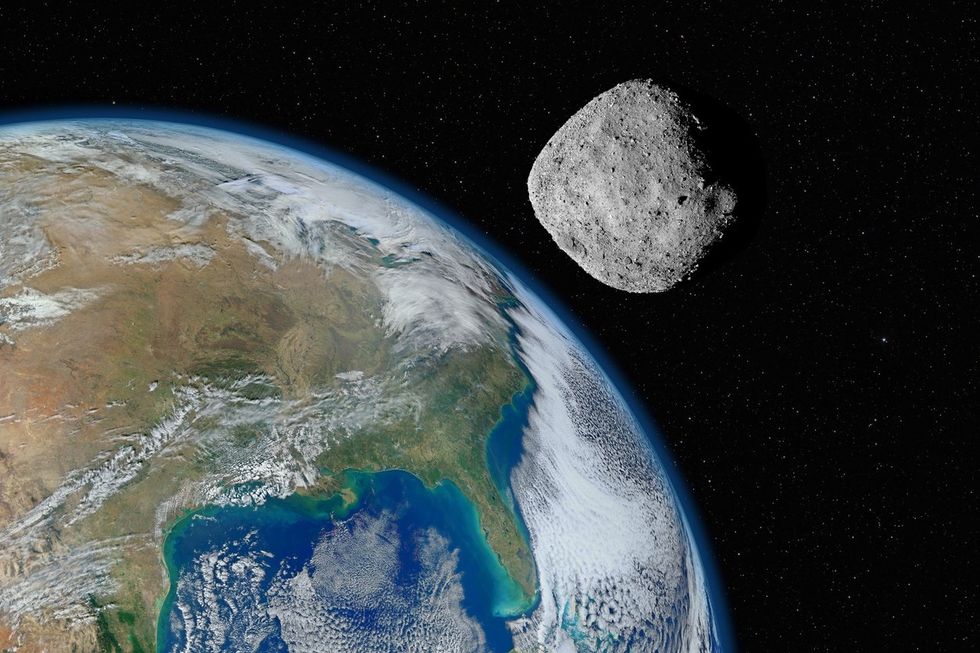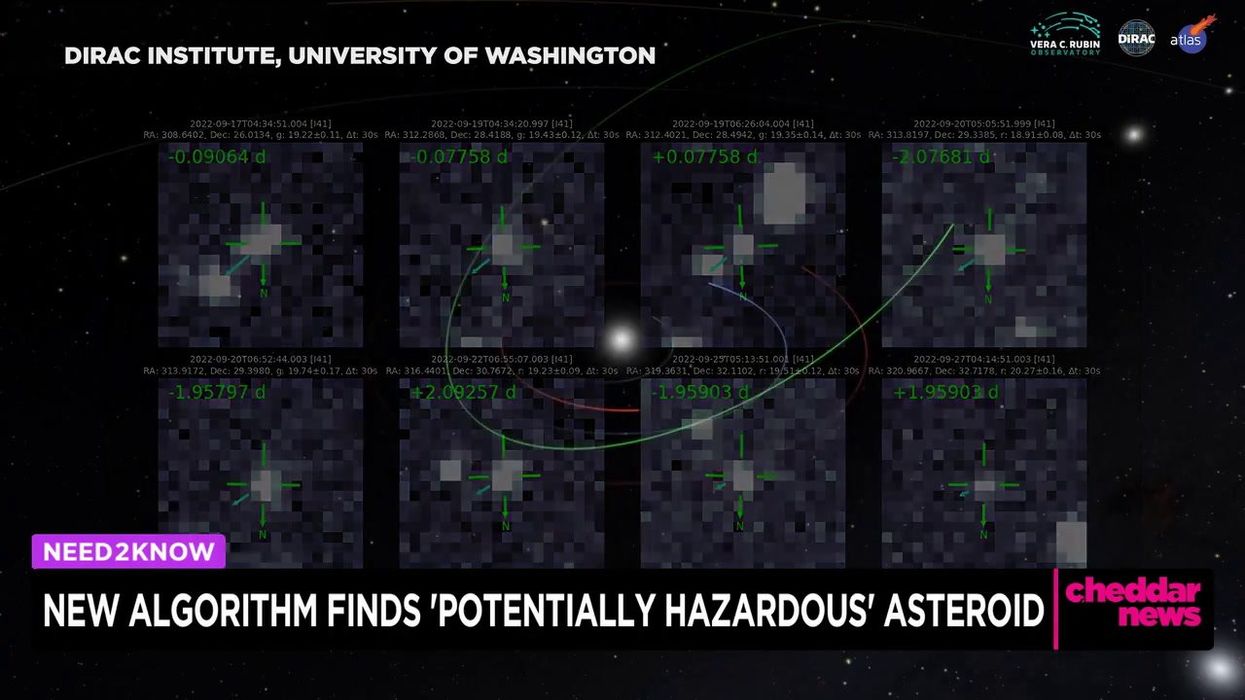Harry Fletcher
Aug 04, 2023
New Algorithm Finds 'Potentially Hazardous' Asteroid
content.jwplatform.com
So far this year, we’ve mostly been seeing artificial intelligence pop up on our timelines as a tool for creating trivial things like odd news songs from classic bands or bizarrely sexualised images of classic artworks
However, it looks like AI had a vital practical implementation recently after spotting a dangerous asteroid heading close to Earth that was originally missed by scientists.
A 600-foot asteroid named 2022 GN1 was found thanks to a new algorithm, and it was revealed that our planet had a close shave with the object last year.
As it’s now been revealed, 2022 GN1 flew a relatively close 4.5 million miles from Earth in September 2022.
Sign up to our free Indy100 weekly newsletter
It sounds like a huge distance, but it falls within the definition of a potentially hazardous asteroid (PHA).

At the time, it was completely missed due to it being obscured by starlight from objects in the Milky Way.
The algorithm, named HelioLinc3D, spotted the object after observing data from the Zwicky Transient Facility (ZTF) telescope.
The team leader behind the algorithm, Mario Jurić, released a statement saying: “This is just a small taste of what to expect with the Rubin Observatory in less than two years, when [the algorithm] HelioLinc3D will be discovering an object like this every night.
“But more broadly, it’s a preview of the coming era of data-intensive astronomy. From HelioLinc3D to AI-assisted codes, the next decade of discovery will be a story of advancement in algorithms as much as in new, large, telescopes.”
Meanwhile, scientists think they have come up with a new approach to mitigating global warming: put up a giant “umbrella” in space to protect the Earth from excess sunlight.
Have your say in our news democracy. Click the upvote icon at the top of the page to help raise this article through the indy100 rankings.
Top 100
The Conversation (0)














